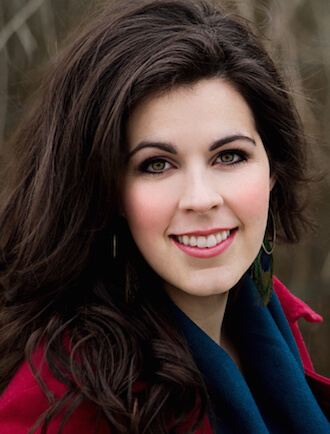Angela Meade, Jennifer Johnson Cano, and Ambrogio Maestri in Verdi's “Falstaff.” | KEN HOWARD/ METROPOLITAN OPERA
It’s so nice — and so rare — when much-touted cultural events live up to their hype! This happened November 23 at what I intend to continue calling the New York State Theater, where I delightedly watched one of the pinnacle events of Lincoln Center’s White Light Festival, the Mark Morris Dance Group in “L’Allegro, il Penseroso ed il Moderato.” This two-hour-long explosion of joy in movement is 25 years old.
Christine Van Loon’s pastel costumes and James F. Ingalls’ brilliantly varied lighting create a whole world that Morris — so much more musically attuned than many prominent choreographers today — fills with remarkable visual evocations of the structures and gestures of baroque music. Handel’s Milton-based oratorio, somewhat pruned and re-ordered, presents a panoply of life experiences, to which the superb dancers rise with tireless energy.
Mark Morris, Juilliard, “Der Rosenkavalier” all please, but a confounding “Falstaff” from Robert Carsen
The music flowed under veteran Handelian Nicholas McGegan, but he had less success than usual getting baroque flavor out of a modern orchestra. Having a celesta stand in for Handel’s carillon bells proved an anachronistic mistake.
The singers stood in the pit. Yulia van Doren’s lovely, agile soprano shone, as did Douglas Williams’ wide-ranging bass-baritone, and they put their words across well. Dominique Labelle had missed the prior show due to illness, and still sounded uncharacteristically strained in her upper octave. John McVeigh retains some agility, but the timbre has dried and his contributions were variable.
Patrick Gardner’s Riverside Choral Society handled its duties capably. The totality was deliriously received, justly so.
So was Handel’s “Radamisto” at Juilliard the next afternoon, the last performance of three. With NYCO gone, one wishes Juilliard and Manhattan School could extend the runs of their shows, which represent some of the city’s most exciting operatic options.
James Darrah’s spare staging, almost dream-like in its deliberate pace and statuesque posing, took a while to make sense, but proved an interesting alternative to the usual mannered strategies of dealing with da capo arias. The design team (scenery and lights by Emily Anne MacDonald and Cameron Jaye Mock; costumes by Sara Jean Tosetti) worked wonders.
Musically, Julian Wachner had things well in hand with Juilliard415 — the school’s early music band, in its first operatic deployment — though the horns had their issues, as baroque horns will. Juilliard unleashed an impressive barrage of vocal talent. For some, Handel may be a way station on to other repertory, but for all of them this experience of singing sustained lines and rapid fiorature is salutary.
Certainly countertenor John Holiday, with his beautiful tone and expressivity, sounded an assured career Handelian in the title role; the only thing somewhat lacking was the ability to sustain the longest lines without an extra breath. As the put-upon Polissena — Radamisto’s sister — Mary Feminear was most impressive, as was the clarion-voice baritone Aubrey Allicock as her straying husband, a cruel invader bent on stealing Radamisto’s wife, Zenobia. Mezzo Virginie Verrez showed fully professional stage command, singing extremely well in a blazing voice perhaps eventually destined for Donizetti heroines.
Not all the singers dealt equally well with the overambitious, high-flying cadenzas Wachner had them venture; but — again, as a totality — this “Radamisto” succeeded beautifully. Julliard’s next mainstage show, in April, is “Cendrillon,” perhaps Massenet’s most ravishing score.
“Der Rosenkavalier” at the Met December 3 proved an enjoyable evening despite Edward Gardner‘s lackluster conducting, Peter Rose’s routinely galumphed-through Ochs, and the fact that Gardner or Robin Guarino’s antic direction drove several reliable supporting singers into poor performances.
For most, “Rosenkavalier” means the three central women. Daniela Sindram made a fine company bow as a coltish, credibly male Octavian, commanding the style and the full range needed. Her timbre is attractive without impressing itself on the memory, as have my favorite Met Octavians (Troyanos, Baltsa, Graham). Sindram worked well with the detailed and moving Marschallin of Martina Serafin — not a “great” instrument and sometimes edgy on top, but echt Viennese and a classy artist. Erin Morley’s likable Sophie sailed beautifully through her exquisite top line, though the voice lacked impact at the bottom.
As a bonus, Guatemala’s Mario Chang assumed his first Met lead (the Italian Tenor) in a burst of fine, resonant latinate sound. Expect to hear more of him.
Robert Carsen’s new “Falstaff,” seen December 9, scored quite high musically under James Levine, but I must dissent from those colleagues who found it charming, well directed, or — oddest of all — funnier than most Broadway comedies. Broadway comedies rarely feature seven-minute pauses between scenes! Paul Steinberg’s sets and Brigitte Reiffenstuel’s spiffy 1950 costumes celebrated dubious British pre-Suez nostalgia, and I just couldn’t work out who Carsen thought these people were.
Fenton (Paolo Fanale, cute but hard-voiced, with little dynamic finesse) starts as a waiter but reappears in riding gear. Ford’s disguise as “Signor Fontana” was a deeply unfunny dude ranch cowboy outfit with mirror shades. How did Falstaff recognize him when he appeared in a smoking jacket as himself? (Young Romanian baritone Åžerban Vasile made an emergency Met debut in the role —cruelly unannounced before the show — singing serviceably enough, keeping his place in ensemble and onstage.) For that matter, how did the dirty, dirt-poor Falstaff keep up his considerable upper-crust wardrobe and club membership?
The whole evening was like that. Why would Alice Ford — beautifully voiced by Angela Meade, but offered a generalized slice of “comic energy” rather than a verbally-fueled characterization — make a romantic dinner and serve it in her kitchen (however snazzily detailed)? What was Mr. Ed doing drawing focus at the start of Act III? “Drawing focus” from the text and principal action seemed to be Carsen’s frequent aim. Clever-clever, frenetic productions like this and the Rat Pack “Rigoletto” can certainly amuse an audience once, but why would anyone want to sit through them again?
Ambrogio Maestri — an extroverted born Falstaff in rich vocal form — made the evening memorable. Strongest in support were Lisette Oropesa’s gossamer-voiced Nannetta and Jennifer Johnson Cano’s exuberant, stylishly dressed Meg. Back on safe vocal ground, Stephanie Blythe’s patented — perhaps too much so — Mistress Quickly won laughs. The imported Italian Dr. Caius sounded terrible.
David Shengold (shengold@yahoo.com) writes about opera for many venues.



































